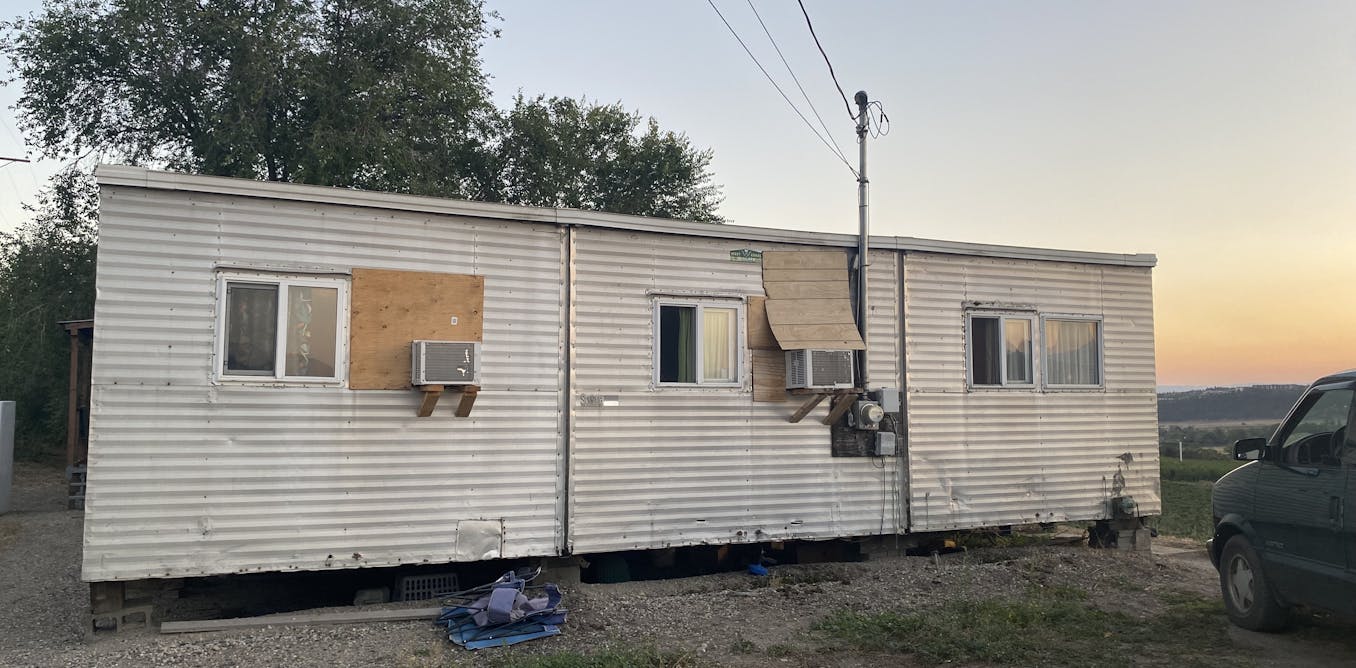/sexual-and-reproductive-health-and-research-(srh)/translation-room-at-the-world-health-organization.tmb-1200v.jpg?sfvrsn=6a145bd9_1)
English language dominates the global public health space. This is an often-neglected weakness in the goal to achieve health for everyone, everywhere. Language justice is an approach to shifting this monopoly, to be more inclusive of different language speakers.
Shining a spotlight on sexual and reproductive health and rights (SRHR) in translation and interpretation is the goal of a new initiative from the World Health Organization (WHO) and the UN’s Special Programme in Human Reproduction (HRP).
Communicating is rarely a straightforward process. This is true even when people speak and write in the same language; now imagine exchanging clear and accurate health information on a global scale.
“If you don’t think about other languages at the start of the process, you’ll end up with an anglophone product, even when the words are in another language,” said Pascal Brice, Head of Language Services at WHO. “It may not resonate with the target audience. If you don’t think about non-English speakers at the beginning of the process, it won’t work.”
Getting translation and interpretation right
/sexual-and-reproductive-health-and-research-(srh)/translation-room-at-the-world-health-organization.jpg?sfvrsn=6a145bd9_3)
Translation room at the World Health Organization. © WHO/Violaine Martin
The SRHR and language initiative asked researchers, scientists, language professionals (translators, interpreters, terminologists) and civil society platforms to share their experiences of working on SRHR in different languages.
Even seemingly simple words can have complicated meanings. Just ask researchers from the HRP Alliance for Research Capacity Strengthening, who translated and tested an English language questionnaire on sexual health and practice (SHAPE) in 19 languages.
A crucial lesson: context shapes understanding, and effective communication in research goes far beyond simply translating words from one language to another.
“There were some words that we couldn’t translate. For instance we had to explain ‘spermicide’,” said Peterrock Muriuki, Programme Officer at the African Population and Health Research Center who worked on the Swahili translation. “Some words, when spoken in Swahili are taboo words. We tried to use neutral or non-explicit words. But generally, by explaining, the meaning of a word could be established.”
These and other discussions led to the review and updating of SRHR records in UNTERM, the United Nations’ multilingual terminology database. This is helping to establish clarity and consistency in discussions across the United Nations, and to avoid words and phrases that reinforce stigma, for instance on topics such as abortion. The next step will be to expand multilingual glossaries to aid interpreters, and the translation of all WHO and HRP content on sexual and reproductive health into the six UN languages.
With language under scrutiny, multilingualism is a strength
Staying alert to ways that language can be used and manipulated as a political tactic is even more important at a time when ideological debates around gender, diversity and misinformation are intensifying and language choices are being influenced by political polarization.
The growth of artificial intelligence and large language models for translation creates enormous opportunity, but also risks in terms of accuracy and consistency, which may compromise people’s confidence in scientific evidence – and in their rights.
Diversity is a strength, and language justice is a powerful approach for sustaining our shared commitment to sexual and reproductive health and rights around the world.
Pascale Allotey / Director of HRP and SRHR at WHO
Sexual and reproductive health is a fundamental component of universal health coverage, but key elements are often left out of health benefit packages. To increase access, everyone needs information and evidence-based services that are responsive to local needs and contexts.
“When did you last think about the words you use? Language can become a habit, unconsciously reinforcing blind spots – or worse, become a tool for exclusion,” said Dr Pascale Allotey, Director of the UN’s Special Programme in Human Reproduction and the Department of Sexual and Reproductive Health and Research at WHO. “Diversity is a strength, and language justice is a powerful approach for sustaining our shared commitment to sexual and reproductive health and rights around the world.”
link






